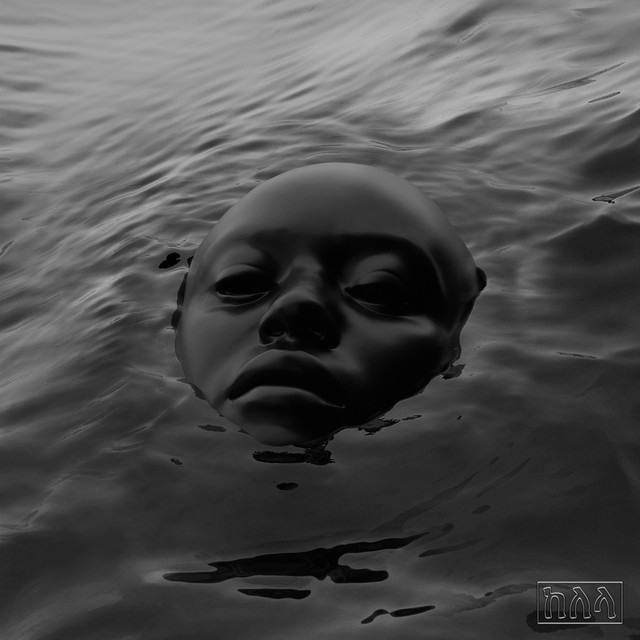‘Raven’ signifies Kelela’s powerful music return
February 16, 2023
With intense swells and calming decompressions, Kelela’s “Raven,” surging with elements of ambient-pop, electronic and R&B, shines a light on Black creation.
Kelela Mizanekristos, known mononymously as Kelela, is an Ethiopian American singer-songwriter who has always toed the line of R&B experimentalism.
Mizanekristos’ debut album “Take Me Apart” was released in 2017 and gave listeners a taste of who she was following a break up. “Raven” is her second studio album released on Friday, Feb. 10 and comes after Mizanekristos’ struggles with productivity and perfectionism.
In an interview with Apple Music, Mizanekristos said summer 2020 amid the Black Lives Matter protests that followed George Floyd’s murder were a catalyst for her introspection.
Mizanekristos looked into perfectionism not in an artistic sense but in a sense of its roots in capitalism and white supremacy.
“Internally, I’ve always wished the world would change around me,” Mizanekristos said in her interview with Apple Music. “I felt during the uprising and the [protests of the early 2020s] that there’s been an external shift. We all have the permission to say, ‘I don’t like that.’”
Despite taking around a six-year hiatus in between albums, it doesn’t feel as if Mizanekristos has left a void in the music world. “Take Me Apart” could be released today, and it would still be considered boundary pushing and electrifying.
Mizanekristos brings that same energy to “Raven,” pairing club and house with her light melodies.
The 15-track album begins with “Washed Away,” which acts as an intro piece setting the listeners up for the rest of the album. Mizanekristos’ lyrics are repetitive, but she changes her flow, which makes the listening experience engaging.
The synths blow softly through the background like wind on an empty beach. Mizanekristos sings about being far away, moving on and a change of pace. It feels as if she is speaking to how she perceives her creative process. “Washed Away” starts the album with an exhale of newfound relief.
“Happy Ending” begins with a bubbling synth and a racing beat tamed with Mizanekristos’ vocals. She continues the idea of being far away from something, but this time she is too far away from a person, a potential lover.
Despite feeling far away, Mizanekristos is “intertwined” with this person they are in conflict with. Despite having a somber lyrical tone, the song is still high energy.
“Let It Go” slows down and presents a juxtaposed position from “Happy Ending.” Mizanekristos is with their lover, but now they are together, and it feels like a “stormy cloud.”
This track combines acoustic and electric elements. Pinging synths are backed by a low strumming bass. The repetition of the lyric “let it go” makes it feel as if Mizanekristos is pleading with herself to abandon this relationship that is causing more pain than good.
“Contact” has a similar composition of a beat and continuous synth to “Happy Ending” but without as much intensity. Instead of struggling with emotional distance, “Contact” deals with physical distance with lyrics about dance and sensuality.
This is the first positive depiction of Mizanekristos’ relationship the listeners are getting, but it’s only the physical half of her story.
“Holier” is another one of those exhale moments on the project. In between talking about the struggles she has because of this situationship, Mizanekristos turns the storyline into one about power signified by the lyric, “And you’re not going to take my crown.”
The storyline of the album then takes a shift. This person leaving will present a figurative void within Mizanekristos, but she’d rather have that void then a person she knows will hurt her down the road.
“Raven,” the title track, is about rebirth. Mizanekristos talks about being able to feel her body now, signifying independence.
The tail-end of the song erupts into a subtle dance trance that continues into the next track.
“Bruises” begins where “Raven” ended and evolves into a woozy, swelling dance track.. Mizanekristos escaped this toxic relationship, but she still grapples with loss and the disconnection.
The subject of “Bruises” being paired with a feverish dance tune is amazing to listen to and creates one of the most intense moments on the album.
“Raven” ends with a long exhale in “Far Away,” which is a lyric that Mizanekristos has repeated throughout the project. The track meanders, with Mizanekristos riffing off the lyric, “far away.”
“Far Away” is a lackluster end to a dynamic project. Mizanekristos could have maintained this same theme, but she ended it on a high-energy dance club outro, a scream instead of a sigh.
While feeling as if it can illuminate a dancefloor, “Raven” is also close and intimate, and a lot of that has to do with Mizanekristos’ vocals. Her voice exists between powerful clarity and calming whispers.
Over the course of the album, the “far away” mantra becomes quite repetitive and having multiple meandering tracks can feel like too much.
I enjoy how this album could be about a lover or about Mizanekristos’ feelings toward creating and existing in a system designed for white supremacy as a Black queer artist.
“Raven” is subtle yet electric. It deserves an eight out of 10.
Mizanekristos really struck it out of the park on this project and gives listeners an interesting perspective into the world of creation that everyone needs more of.



























































































